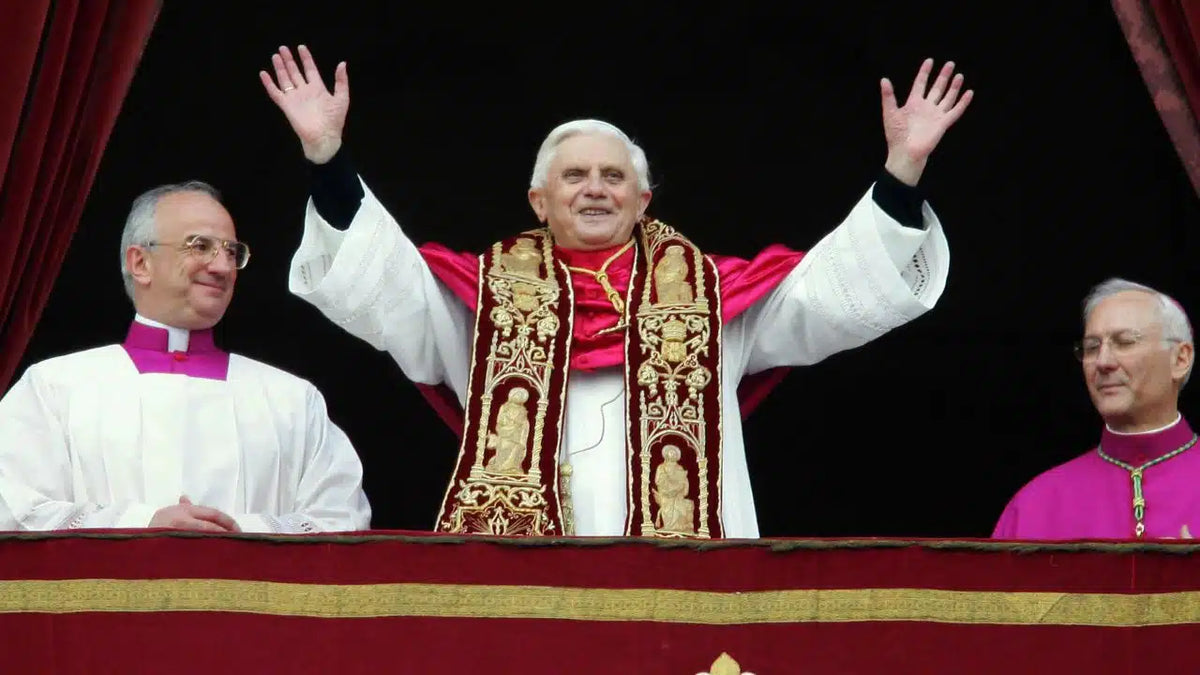
Benedict XV: A Shepherd in Wartime
|
|
Time to read 4 min
|
|
Time to read 4 min
Pope Benedict XV, born Giacomo della Chiesa, ascended to the papal throne in 1914, a year that would irrevocably change the world. His pontificate was largely defined by the cataclysmic event of World War I, a conflict that inflicted immense suffering on humanity.
A man of peace and reconciliation, Benedict XV was deeply troubled by the outbreak of war. He consistently advocated for diplomacy and ceasefire, urging the warring nations to prioritize human life over nationalistic ambitions. His encyclical, Ad Beatissimi Apostolorum, issued in 1914, was a powerful plea for peace, calling upon the warring parties to cease hostilities and engage in dialogue.
The Pope's efforts to mediate the conflict were met with limited success, as the nations were locked in a brutal struggle for supremacy. Despite the challenges, Benedict XV remained steadfast in his pursuit of peace, establishing a papal commission to aid war victims and providing humanitarian assistance to those affected by the conflict.
Beyond his tireless efforts for peace, Benedict XV was also a visionary leader who addressed pressing issues of his time. He recognized the importance of fostering unity among Christians and worked towards ecumenical dialogue. His encyclical, Humani Generis, emphasized the need for Christian unity and called for greater cooperation among different denominations.
The Pope also demonstrated a keen awareness of social issues, particularly the plight of the poor and marginalized. He advocated for social justice and called upon Catholics to work for the betterment of society.
Tragically, Benedict XV did not live to see the end of the war. He passed away in 1922, leaving behind a legacy of peacemaking and compassion. His unwavering commitment to human dignity and his tireless efforts to alleviate suffering continue to inspire generations.
While best known for his tireless efforts to end World War I, Pope Benedict XV was a complex figure whose legacy extends far beyond his peacemaking endeavors. His pontificate was a time of significant challenges, but also of remarkable vision and leadership.
One of the most enduring aspects of his papacy was his commitment to ecumenism. Benedict XV recognized the importance of Christian unity and worked tirelessly to foster dialogue and cooperation among different denominations. His encyclical, Humani Generis, was a landmark document in the history of ecumenism, calling for greater understanding and collaboration among Christians.
In addition to his ecumenical efforts, Benedict XV was a champion of social justice. He was deeply concerned about the plight of the poor and marginalized, and he called upon Catholics to work for a more equitable society. His encyclicals addressed issues such as labor rights, poverty, and social inequality, demonstrating a prophetic voice in a rapidly changing world.
The challenges posed by the war necessitated significant administrative reforms within the Church. Benedict XV, with the assistance of Cardinal Pietro Gasparri, undertook a comprehensive reorganization of the Roman Curia. The new Code of Canon Law, promulgated in 1917, was a monumental achievement that provided a clear and unified framework for the governance of the Church.
Tragically, Benedict XV's reign was cut short by illness. He died in 1922, leaving behind a legacy of peacemaking, ecumenism, and social justice. His pontificate, though marked by immense suffering, was also a time of hope and renewal. The seeds he planted would continue to bear fruit in the decades to come.
While primarily remembered for his peacemaking efforts during World War I, Pope Benedict XV was also a visionary leader in the realm of missionary activity. His pontificate marked a turning point in the Church's approach to evangelization.
Recognizing the changing global landscape, Benedict XV emphasized the importance of adapting missionary methods to local cultures and conditions. He encouraged missionaries to focus on education, healthcare, and social welfare, in addition to preaching the Gospel. His apostolic letter, Maximum Illud, issued in 1919, outlined a new vision for missionary work, emphasizing the formation of local clergy and the development of self-sustaining Christian communities.
Benedict XV also sought to strengthen the Church's presence in Asia, particularly in China, where Christianity faced significant challenges. He established diplomatic relations with the Chinese government and supported the growth of the Catholic community in the region.
The Pope's commitment to ecumenism extended to the missionary field as well. He recognized the importance of fostering unity among Christians in mission territories and encouraged dialogue and cooperation between different denominations.
Benedict XV's legacy in missions continues to inspire and guide the Church today. His emphasis on inculturation, the formation of local clergy, and the holistic approach to evangelization remains relevant in a world that is increasingly interconnected and diverse.
Conclusion
Pope Benedict XV, a pontiff of peace and reconciliation, left an enduring legacy on the Catholic Church. His leadership during the tumultuous years of World War I demonstrated unwavering commitment to human dignity and the pursuit of peace. Beyond his peacemaking efforts, Benedict XV was a visionary leader, advocating for ecumenism, social justice, and the revitalization of missionary work.
His pontificate stands as a testament to the Church's capacity for compassion and its role as a moral compass in a troubled world. In an era marked by conflict and division, Benedict XV offered a beacon of hope, inspiring future generations to work towards a more just and peaceful world. His legacy continues to resonate, challenging the Church to remain steadfast in its mission of proclaiming the Gospel and serving humanity.